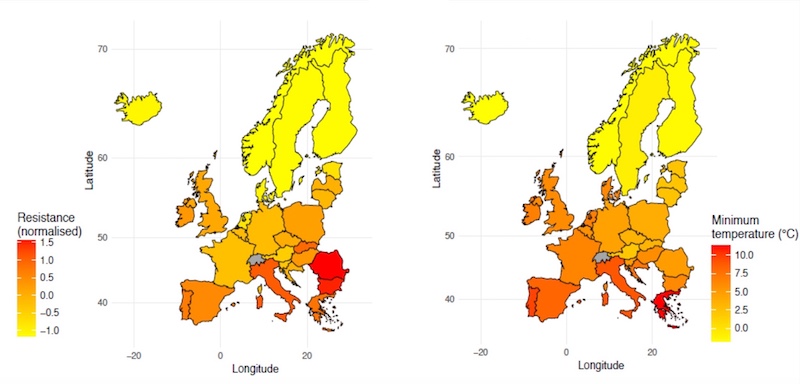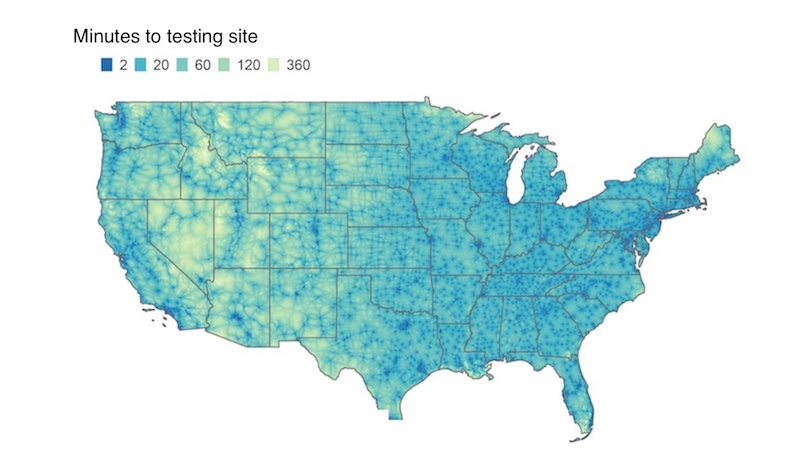If another pandemic hits, our online ‘footprints’ may help the experts
When the new coronavirus hit early last year, little was known about it. As people started coming to the emergency room, doctors scrambled to understand COVID-19 and its trajectory of symptoms. Testing was limited, and only over a period of months did the full fury of the new virus make itself known. Community after community ... Read More about If another pandemic hits, our online ‘footprints’ may help the experts
Rising global temperatures tied to rising antibiotic resistance
A new data analysis suggests that two rising public health threats — climate change and antibiotic resistance — are related. The study, spanning 2000 to 2016, doesn’t establish cause and effect. But its findings, in the journal Eurosurveillance, suggest that rising global temperatures could be helping to fuel increases in antibiotic-resistant bacteria. Key takeaway Countries ... Read More about Rising global temperatures tied to rising antibiotic resistance
Internet searches provide real-time estimate of Lyme disease risk
Lyme disease season is well underway. How much of a risk do we face for this tick-borne illness? A new method dubbed Lymelight, developed by researchers at Boston Children’s Hospital and Google, can accurately estimate Lyme disease risk in real time, down to the county level. Historically, estimates of Lyme disease have been based on ... Read More about Internet searches provide real-time estimate of Lyme disease risk
Disparities in travel time to COVID-19 testing sites may bias case estimates
As the U.S. economy begins to reopen after two months of lockdown, states and counties are using local data on COVID-19 incidence to inform their plans. But a new analysis highlights an inconvenient truth. Geographic access to COVID-19 testing sites is as uneven as access to health care overall, meaning that local estimates of COVID-19 ... Read More about Disparities in travel time to COVID-19 testing sites may bias case estimates
Adults with cancer appear more vulnerable to COVID-19
Cancer, particularly metastatic cancer, can be added to the list of medical conditions that pose a significant risk of worse COVID-19 outcomes , suggests a new study. Led by Boston Children’s Hospital and Zhongnan Hospital of Wuhan University, it represents the first large cohort study to examine COVID-19 outcomes in cancer patients. Findings were published ... Read More about Adults with cancer appear more vulnerable to COVID-19
Mobile ‘location’ data could help guide COVID-19 social distancing measures
How well are quarantines and social distancing working to slow the COVID-19 pandemic? When is it safe for us to return to school or work? The answers could lie, in part, in the “location” data that companies like Google collect from us every day. Last week, a group of epidemiologists, public health experts, and data ... Read More about Mobile ‘location’ data could help guide COVID-19 social distancing measures







